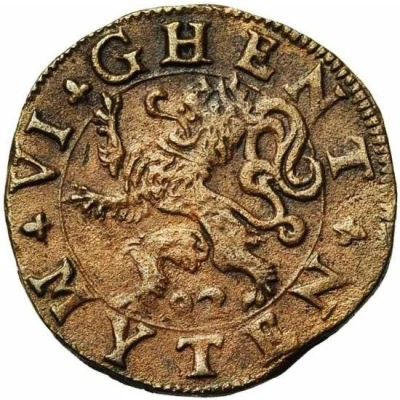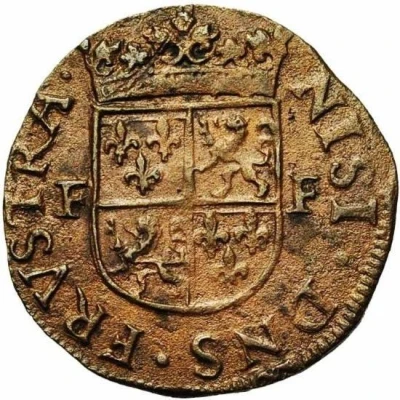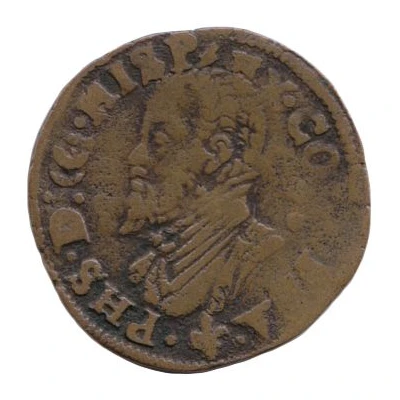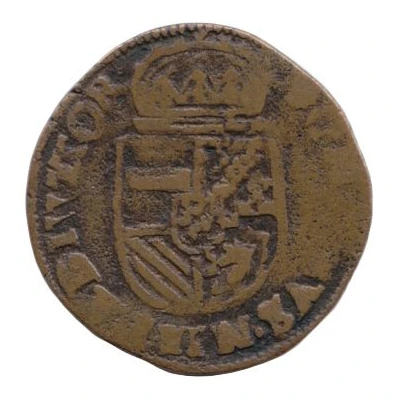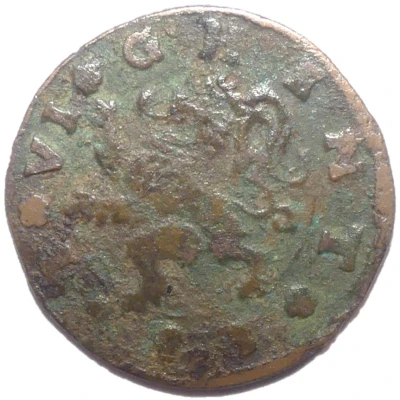
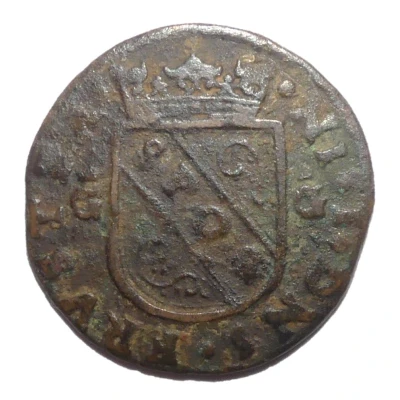

© Collector 86 (CC BY-NC-SA)
6 Mites - Ghent Revolt
| Copper | 2.7 g | 23 mm |
| Issuer | Spanish Netherlands (County of Flanders, Belgian States) |
|---|---|
| Period | States in Revolt (1577-1585) |
| Type | Standard circulation coin |
| Years | 1583-1584 |
| Value | 6 Mites (1⁄160) |
| Currency | Gulden (1506-1713) |
| Composition | Copper |
| Weight | 2.7 g |
| Diameter | 23 mm |
| Shape | Round (irregular) |
| Technique | Hammered |
| Orientation | Coin alignment ↑↓ |
| Demonetized | Yes |
| Updated | 2024-10-04 |
| Numista | N#333634 |
|---|---|
| Rarity index | 97% |
Reverse
Crowned shield with diagonal banner, flanked by two Gs.
Script: Latin
Lettering:
NISI. DNS. .FRVSTRA.
SPQG
Unabridged legend:
Nisi Dominus frustra
Senatus Populus Que Gandensis
Translation:
Unless God (is with us) all will be in vain.
Senate of the people of Ghent
Edge
Plain
Comment
Very interesting article on these coins in the 1931 issue of the Revue Belge de Numismatique et de Sigillographie: le dernier atelier monétaireof Ghent (1581 to 1584) by Ch. Gilleman. http://www.numisbel.be/1931_5.pdf
On page 48: "The arms of the deposed Count have been replaced by a banner bearing the letters S.P .Q.G. imitated from the initials S.P .Q.R. on the coins of Republican Rome. 1,481 marcs 4 ounces of twelve-moth coins and 138 marcs 4 ounces of six-moth coins were put into circulation. The latter are of two species, distinguished by the place occupied by the date, but between which it is impossible to make the departure, for lack of an indication provided by the writings of the time."
This allows us to do a little calculation on the mintage, since 138 marcs and 4 ounces make approximately 33.898 kg of copper. Since my coin weighs 2.7 g, we can estimate a print run of 12,500...
Interesting fact
One interesting fact about the 6 Mites coin from the Ghent Revolt 1583-1584 is that it was minted during a time of great turmoil and rebellion in the region. The Ghent Revolt was a protest against the Spanish rule in the Netherlands, and the coin was likely used as a symbol of resistance and independence. Despite its small denomination, the coin holds significant historical value and is a reminder of the struggles and triumphs of the people during that time.
